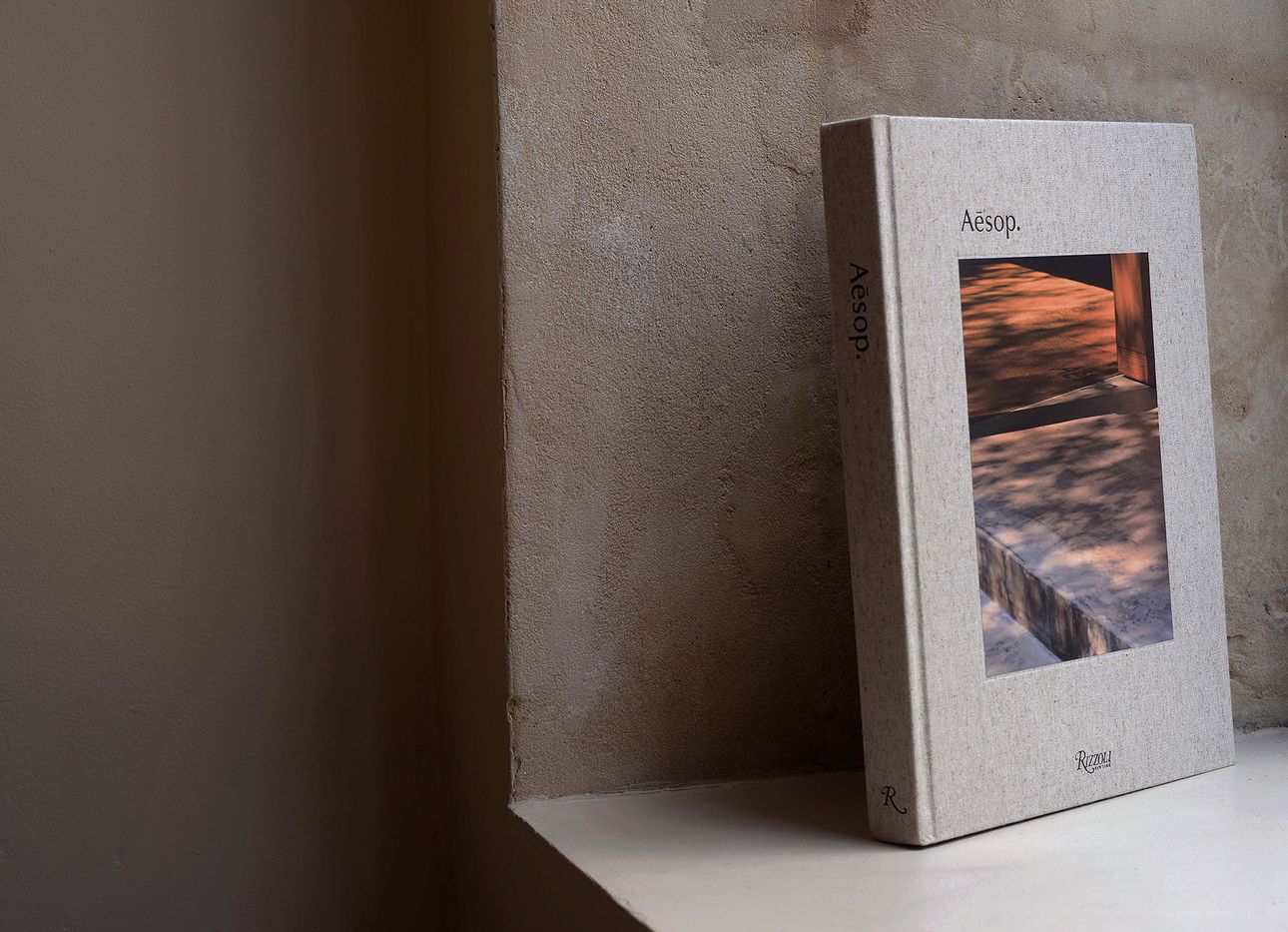
How Aesop Grew Into an “Anti-Salon” Beauty Empire
The precise and pared-down aesthetic of the Australian beauty company Aesop might seem completely of-the-moment—the Apple or Muji equivalent of skin care—until you realize that, like both of those brands, its lasting power goes back to the ’80s (though it has been owned by a Brazilian company for the better part of the past decade). Once a cult brand, it now runs more than 235 stores worldwide, its translucent amber bottles ubiquitous in boutique hotels and upscale restaurants.
Aesop, a new monograph from Rizzoli, tells the origin story of how hairdresser Dennis Paphitis began selling the first products at Emeis, his emphatically “anti-salon” hair salon that sought to change the game by redesigning the entire experience around the senses (yes, we know, quite apropos for us to bring up in this newsletter)—and with the exacting tenacity of a Steve Jobs–like persona, to boot. Customers would enter into a space filled with natural light, kept preternaturally quiet, sparsely furnished, and, most notably, scented with an herbaceous aroma of French rosemary, sage, and Tasmanian lavender—a cocktail of essential oils, diffused in bowls of hot water, that would form the basis of his first products. It’s not hard to see how the salon, while short-lived, served as the road map to Aesop, detailed in the following pages. In the brand’s own words: “We prefer to be discovered through smell and sound, rather than through loud signage and florid displays.”